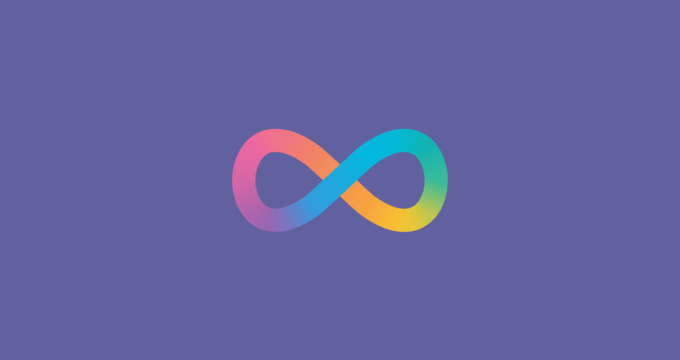Divergent Thinking – why and how it fuels your creativity
Creativity
There are many great ideas and innovations created by people just like you. Maybe you think that those people have some special talent or are naturally gifted, and that may be true to some extent, but there are methods that can help you be more creative.
One of those methods is a cognitive process known as divergent thinking.
What is divergent thinking
So, what is divergent thinking exactly? It’s basically nothing more than the ability to generate multiple solutions and ideas when faced with a specific problem.
Divergent thinking is the opposite of convergent thinking. Convergent thinking is to apply logical thinking in order to come up with a single correct answer to the problem at hand.
Divergent thinking is based on exploration and encourages you to be flexible and explore a broad range of possibilities and come up with multiple ideas to solve the problem.
Studies have shown that when people performed divergent thinking tasks, the regions in the brain associated with creativity, like the prefrontal cortex and the default mode network, showed increased activity.
The 4 types of divergent thinking
Divergent thinking can manifest in various forms, each serving a unique purpose in the creative process. Here are the four primary types of divergent thinking:
1. Fluency
Fluency involves generating a large number of ideas or solutions in a short amount of time. It’s all about quantity over quality. Allow your mind to explore a wide range of possibilities without judgment or restraint. Check out our guide on how to create an environment that nurtures creative and new ideas.
2. Flexibility
Flexibility means being able to think in various ways, consider multiple perspectives, situations, approaches, or possibilities. A flexible thinker can easily switch between different modes of thinking and explore various avenues without being constrained by conventional norms or constraints. Shift perspective, analyze things from various standpoints, consider different cultural backgrounds and explore unconventional routes.
3. Originality
If all your ideas are all similar they may however lack originality. Here is where originality comes in. Originality is the hallmark of divergent thinking. You should try to come up with novel and unique ideas during your idea generating process so do a lot of research on what has been done already. Knowing the past helps you to avoid ideas or solutions that have already been tried before.
4. Elaboration
Once you’ve collected a huge amount of ideas that are hopefully very original, it’s time to go deeper and refine them. Expand your initial thoughts and ideas and add depth and detail to your concepts. It’s all about refining and enriching your ideas to make them more robust.
The benefits of divergent thinking
Mastering divergent thinking can offer a multitude of benefits, both personally and professionally. Here are some of the ways divergent thinking can enhance your life:
1. Enhanced Creativity
Divergent thinking is a way to be more creative and create innovative ideas and solutions, so it’s obvious that if you practice divergent thinking frequently, you will enhance your creativity.
2. Improved problem-solving skills
Creativity and problem-solving often go hand in hand. You can apply divergent thinking not only to create innovative new ideas but also to come up with innovative solutions to a problem you’re facing. Hence, as a divergent thinker, you’re also elevating your problem-solving skills.
3. Increased adaptability
Many of us feel that the world is spinning too fast and it’s hard to keep up with everything that is going on. However, change is inevitable, and with its increased speed, it’s more important than ever to be able to adapt. Divergent thinking helps to increase your adaptability as you’re required to consider different viewpoints and scenarios when creating your ideas.
4. Greater self-expression
Divergent thinking can also help you express yourself more freely. Each of us comes from a different background and has a unique perspective of the world that we can express in the form of ideas. This can also lead to an increased sense of fulfillment and purpose.
How to cultivate divergent thinking
To fuel divergent thinking, it’s essential to create an environment that fosters creativity and encourages exploration. Here are some strategies to help you tap into your divergent thinking abilities:
1. Cultivate curiosity
Curiosity is the real driver in divergent thinking. If you’re curious you’re more likely to engage in divergent thinking and come up with great new ideas and innovative solutions. Ask questions, seek new experiences and try to expand your knowledge in as many different areas as possible.
2. Embrace diversity
Expose yourself to diverse perspectives and cultures. Whether through travel, reading, or engaging with people from different backgrounds, embracing diversity can broaden your outlook and fuel your creativity.
3. Practice mindfulness
Mindfulness techniques, such as meditation and deep breathing exercises, can help quiet the mind and enhance focus, allowing your creative ideas to flow freely. Studies have found that mindfulness practices can increase divergent thinking abilities and improve problem-solving skills.
4. Experience new things
When we experience new things, we collect an array of new information to draw upon during our divergent thinking tasks. Each new experience, whether it’s something simple such as trying a new ingredient or something more complex such as learning a new craft, will broaden your perspective and toolbox.
5. Practice associative thinking
Associative thinking means making unexpected connections between seemingly unrelated concepts or ideas. By connecting seemingly random things, you can make new connections and come up with innovative solutions. Engage in activities such as mind mapping, brainstorming, or free association exercises to stimulate divergent thinking.
6. Collaborate with others
Collaboration also plays a big role when it comes to divergent thinking. If you collaborate with others, especially if they come from a diverse background, you are exposed to new perspectives and can greatly benefit from other peoples input. Make sure to be in environments where everyone feels encouraged to express their unique viewpoints so you can contribute your viewpoint and learn from others.
7. Learn from your failures
Failure is an inevitable part of the creative process that we all need to live with. Try to analyze your failures and search for valuable lessons. Adopt a growth mindset and view your setbacks as something to learn from and grow.



